Latest
10 things Buhari must deal with in second term
Published
7 years agoon
By
Editor 1
Nigeria’s President Muhammadu Buhari officially begins his second and final term on Wednesday following his re-election in February.
Despite his large winning margin, the next four years won’t be easy for the 76-year-old former general. Here are some of the key issues he’ll face while at the helm of Africa’s biggest oil producer and most populous nation.
Growth and Inflation
Nigeria’s economic growth has slumped since the 2014 crash in crude prices and Buhari is struggling to revive it. The International Monetary Fund forecasts that gross domestic product will expand 2.1% this year, which would make Nigeria one of Africa’s slowest-growing economies and mean that growth is negative in per capita terms. Inflation is at 11.4% and has been above the central bank’s target of 6% to 9% for almost four years.
Revenue and Debt
Since so few Nigerians and companies pay tax, the nation has one of the lowest revenue-to-GDP ratios in the world at about 7%. That leaves the government with little money to spend on schools, hospitals and infrastructure. Officials are also concerned about how much of the budget is soaked up by interest payments. In March, the Debt Management Office told Bloomberg it will avoid Eurobonds and instead prioritize concessional loans from the likes of the World Bank to lower its finance costs.
The Naira
Foreign investors’ biggest gripe over the past four years was how Nigeria handled the naira in the wake of the oil crisis. Central bank Governor Godwin Emefiele, who Buhari just re-appointed for a second term, ramped up capital controls in a bid to stop the currency depreciating. There’s a system of multiple exchange rates in place that critics, including the IMF, say is opaque and deters investment. Many also say that central bank meddling has left the naira overvalued: Renaissance Capital estimates it should be about 20% weaker against the dollar.
ALSO READ:APC disagrees with Buhari over choice of Akpabio as minister
Foreign Investment
A slump in foreign direct investment since the early part of the decade has accelerated under Buhari, whose administration has come into conflict with companies including MTN Group Ltd. and JPMorgan Chase & Co. Last year, FDI flows into Nigeria totalled just $2.2 billion, less than a third of the amounts South Africa and Egypt attracted.
Fuel Prices
Buhari is an advocate of low gasoline prices, believing they’re one of the few benefits that Nigerians get from the state. They’re capped at 145 naira a liter ($0.40, or $1.51 a gallon), which makes Nigeria the sixth cheapest country in which to fill up your tank, according to GlobalPetrolPrices.com. That cost almost $2 billion in subsidies last year, according to the IMF, which has urged the government to raise prices.
Oil and NNPC
One reason for optimism about the economy is rising crude production. It climbed to 1.9 million barrels a day in April, the highest level in more than three years, as Total SA’s massive Egina offshore field came on-stream. Investors will hope that Buhari encourages more deepwater developments while also cleaning up Nigerian National Petroleum Corp., the state-owned energy company that opposition politicians say is blighted by graft and mismanagement.
Blackouts and Gridlocked Ports
Nigeria has long suffered from dire infrastructure, not least its power network and ports. Buhari has struggled to fulfill his pledge to end constant electricity outages and chaos at the country’s main ports, both of which weigh on economic growth.
Islamic State and Boko Haram
While Buhari managed to win back territory in the northeast held by Boko Haram when he first came to power, a breakaway faction allied to Islamic State is gaining strength and regularly attacks army bases and convoys. That’s one of a string of security problems that have escalated in recent years. In other parts of the country, clashes between farmers and herders over grazing land led to around 2,000 deaths in 2018, according to Amnesty International.
Corruption
Buhari’s popularity with voters is largely because of his promises to fight corruption. While he says his administration has done much to cut graft in the public sector, critics complain that he lacks a clear strategy and that he’s used his anti-corruption campaign to go after political opponents.
Booming Population
One of the biggest long-term issues facing Nigeria is its rapidly-growing population — the United Nations expects it to double to 410 million by 2050, overtaking every country bar India and China. While some investors see that as a reason to move into Nigeria, others say it threatens social and political stability in a country whose government already struggles to provide basic services and which has more extremely poor people than any other.
You may like
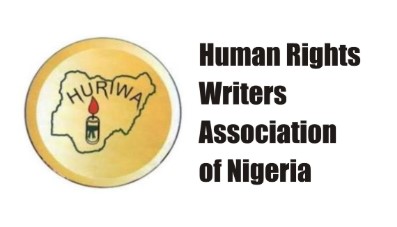

HURIWA slams EFCC as Tinubu’s attack dog, Says Tambuwal’s arrest is intimidation tactic against opposition
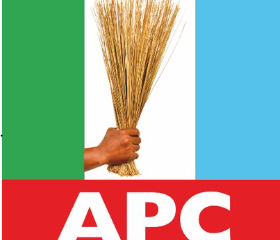

APC Chieftain, Eze Chukwuemeka, Accuses Tinubu of “Electoral Fraud” Plot for 2027
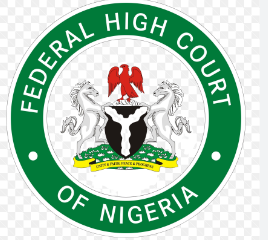

Bauchi Accountant-General’s Money Laundering Trial Stalled in Abuja Federal High Court


Civil servants arraigned in Yola over alleged diversion of W’Bank funds for Boko Haram damaged schools
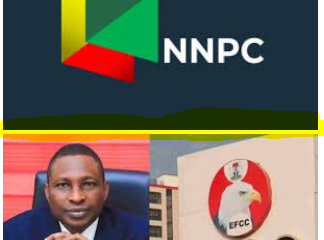

EFCC : ‘Mind-Boggling’ corruption discovered in NNPCL — Olukoyede reveals
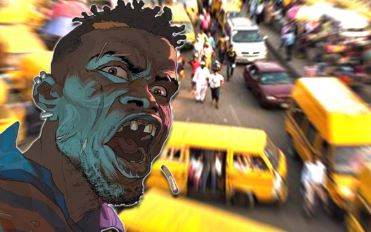

How Agberos impose hidden costs to cause high bus fares in Ajah
Trending

 Entertainment1 week ago
Entertainment1 week agoSinger Simi faces backlash after TikToker admits to false rape allegation

 Entertainment5 days ago
Entertainment5 days agoSimi addresses resurfaced 2012 tweets amid online backlash

 Comments and Issues1 week ago
Comments and Issues1 week agoNigeria’s Declining Oil Output and Soaring Foreign Portfolio Investment Inflow

 Comments and Issues1 week ago
Comments and Issues1 week agoEx-prince Andrew’s arrest, lessons for Nigeria

 Comments and Issues1 week ago
Comments and Issues1 week agoThe Seyi Tinubu’s jellof rice, loaves of bread

 Health7 days ago
Health7 days agoSCFN, LUTH introduce bone marrow transplants as curative treatment for sickle cell

 Health3 days ago
Health3 days agoDeclassified CIA memo explored concealing mind-control drugs in vaccines

 Football7 days ago
Football7 days agoHarry Kane nets brace as Bayern edge Frankfurt 3–2 to go nine points clear

